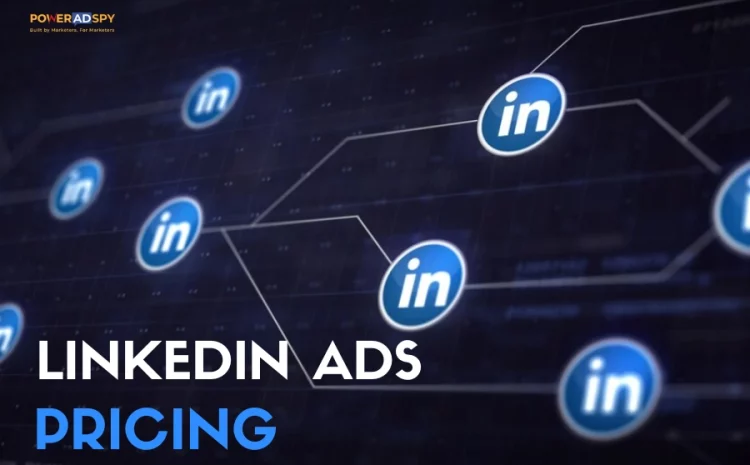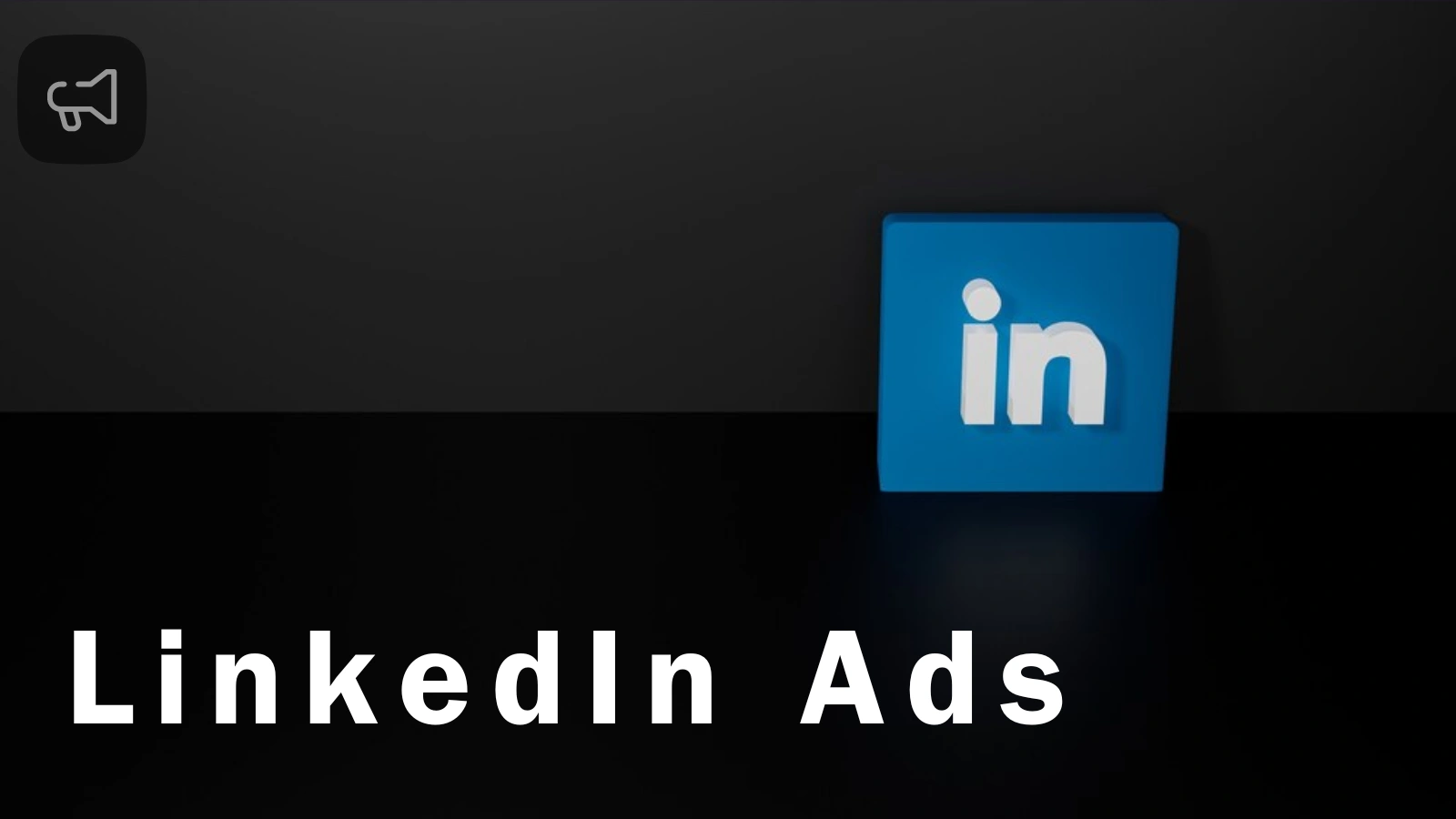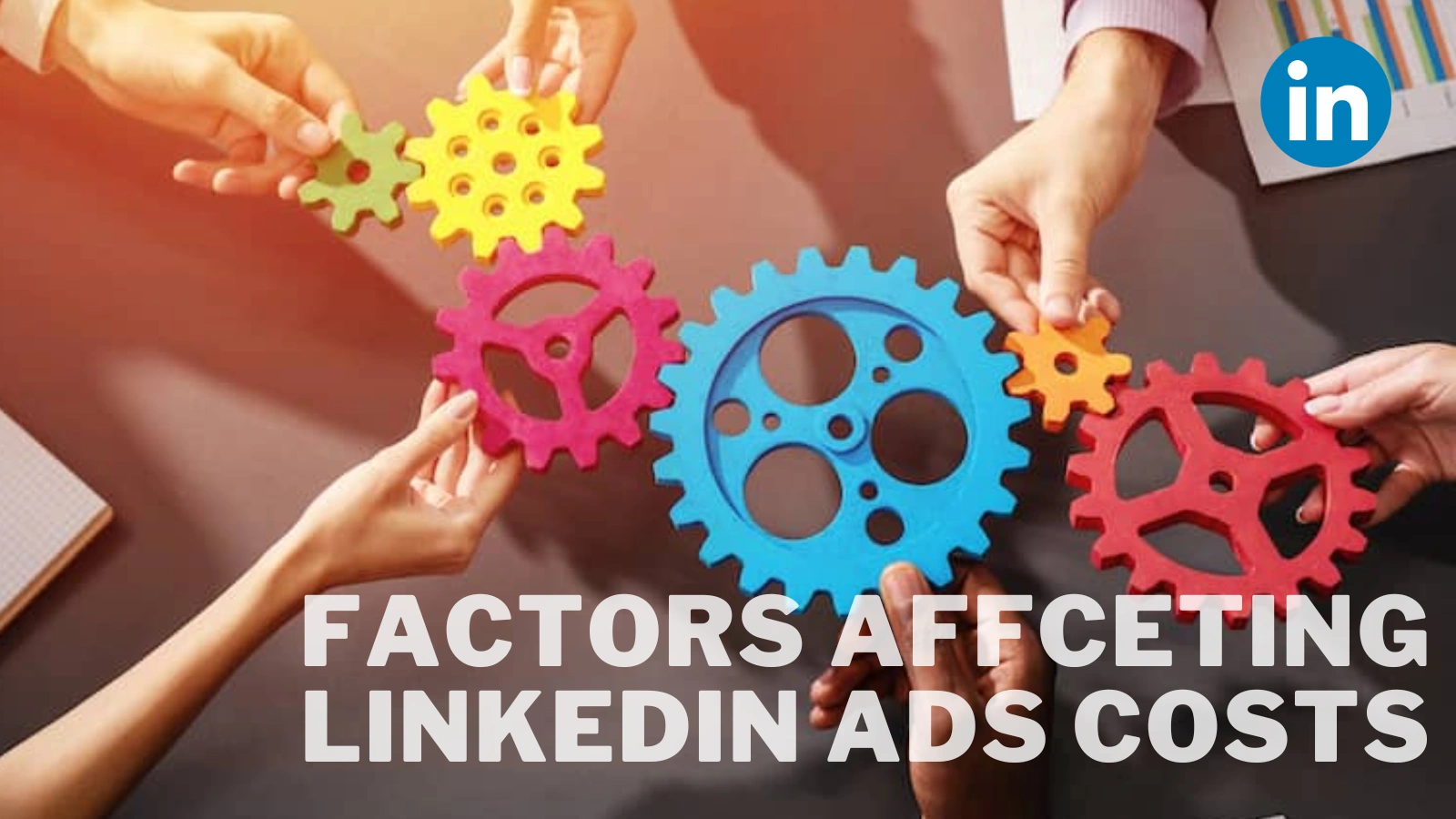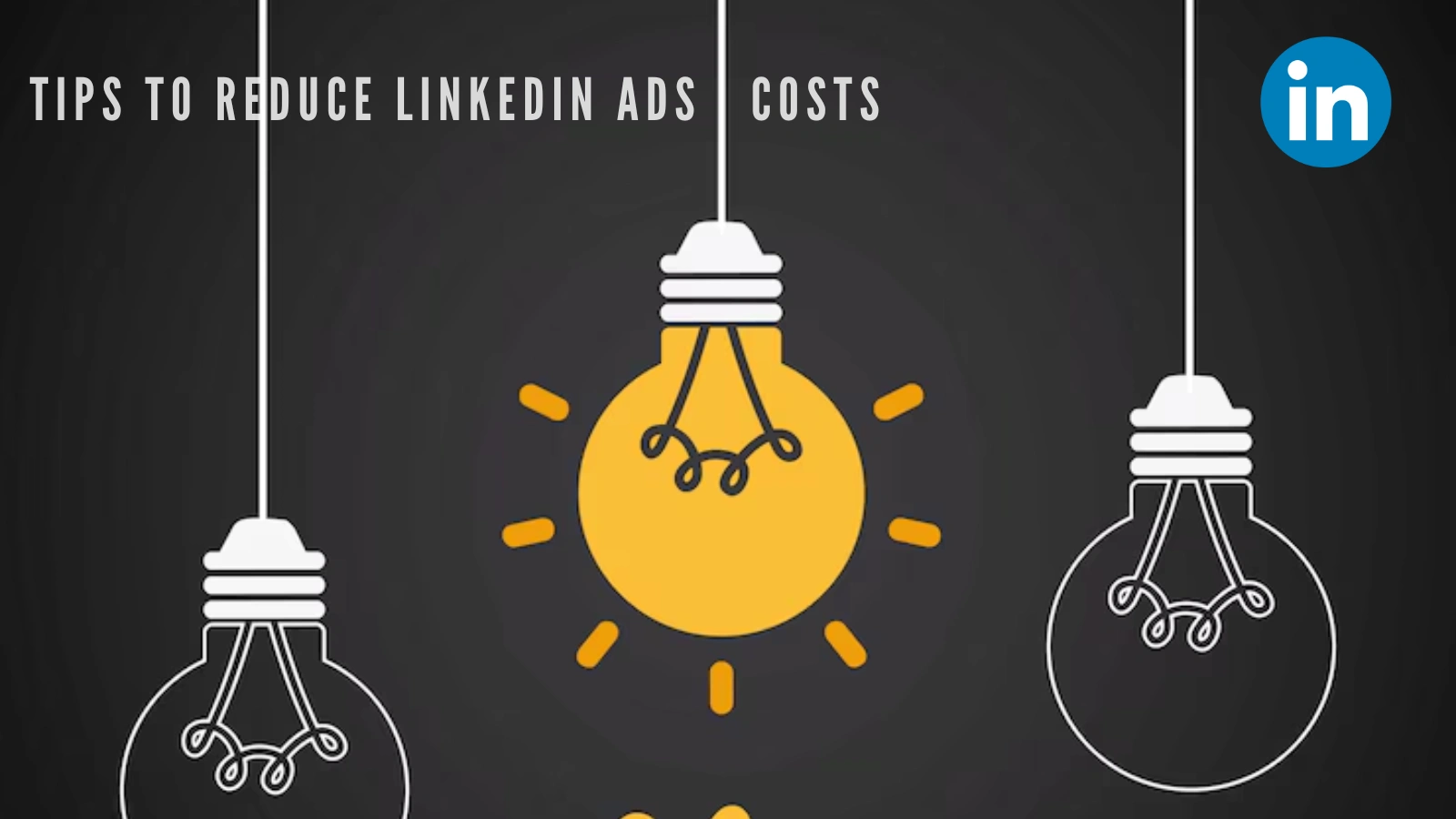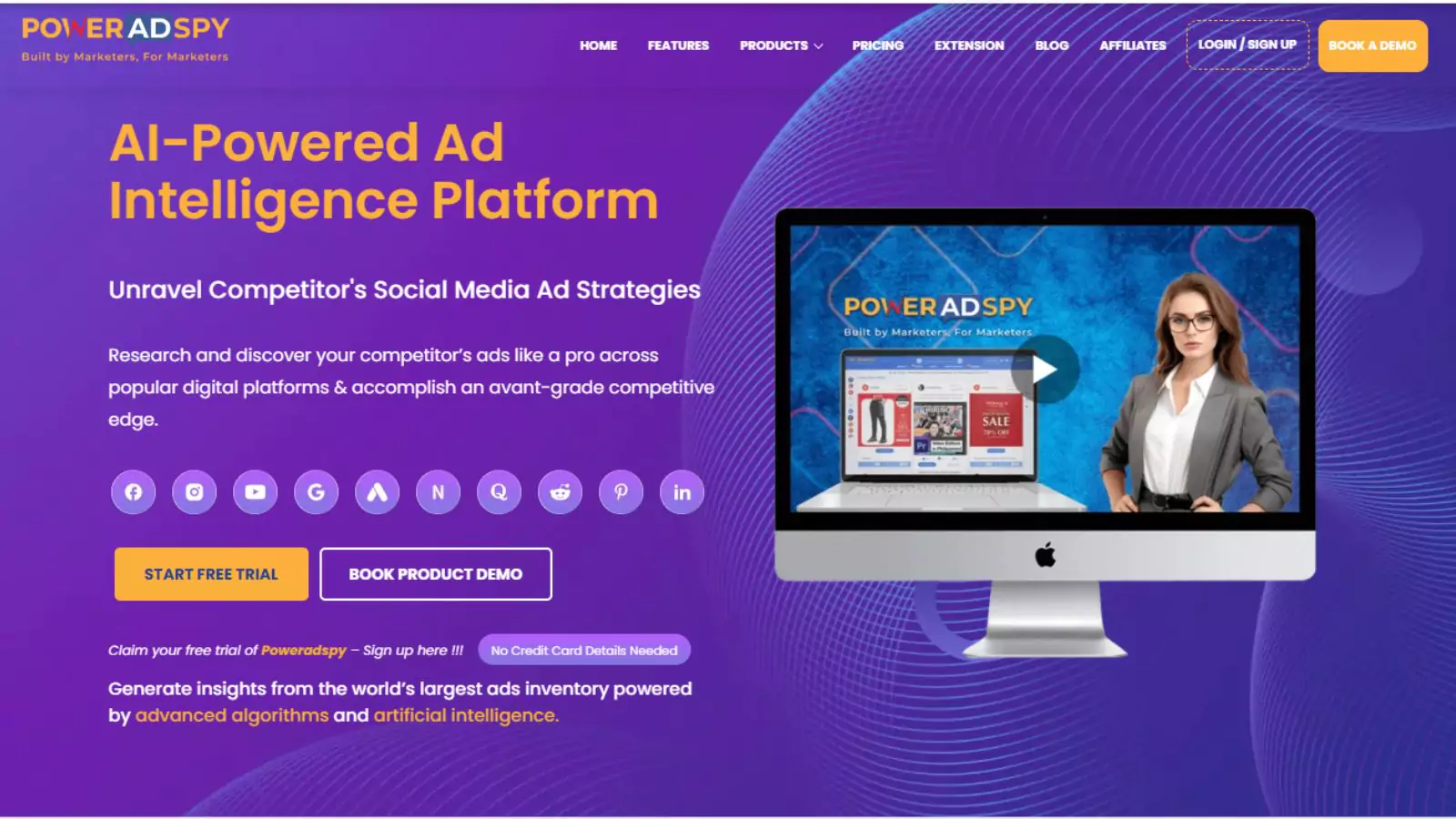Understanding the Basics of LinkedIn Ad Pricing in 2024
In 2024, more and more businesses are using LinkedIn’s powerful advertising platform to boost their presence. Understanding LinkedIn ads pricing is crucial for optimizing marketing budgets and achieving campaign objectives. Several factors come into play when considering the cost to advertise on LinkedIn. These factors include ad format, targeting options, bidding strategy, market demand, and budget constraints.
LinkedIn offers various targeting possibilities, enabling marketers to connect with particular experts according to industry, job title, and skill sets, which could also affect your ad budget. Moreover, Linkedin ad pricing is also influenced by bidding tactics like cost-per-click (CPC) and cost-per-impression (CPM). While budget allocation affects advertising efficiency, market demand, and competition can also have an impact on pricing changes. Businesses can maximize the return on investment (ROI) of their advertising efforts on LinkedIn by having a basic understanding of the price of ads on the network.
So, let’s start the blog and learn why LinkedIn ads are helpful and the factors affecting LinkedIn ads pricing.
Listen To The Podcast Now!
Why You Should Advertise on LinkedIn Ads?
LinkedIn ads are highly useful for businesses and professionals due to several key reasons, making it an essential platform for marketing and networking. Here’s why LinkedIn ads are valuable:
Smarter Retargeting
LinkedIn ads makes it easy to target to the most valuable audience on the platform. It facilitate the process of reaching and growing your audience through events, your website, and other channels. Custom targeting on LinkedIn to target accounts, website visits, and more is made possible via matched audiences. It also allows you target your competitor’s audiences, pushing the business growth.
Tighter Sales and Marketing Alignments
LinkedIn paid advertising facilitates communication and collaboration between sales and marketing. Campaign Manager seamlessly interacts with LinkedIn Sales Navigator to streamline chances for retargeting from sales to marketing and the handoff from marketing to sales. Using the same technology for both departments makes it simpler to monitor progress, set targets, and eventually increase income.
Overall Brand Lift
Promoting your brand is an investment that will pay off in the long run. Continued brand recognition is essential because up to 95% of your potential customers are not in the market at any given moment. Businesses may develop their brand recognition, reputation, and position as leaders in their sector by regularly producing interesting and relevant LinkedIn ads content..
LinkedIn Ads Pricing Models
When it comes to LinkedIn advertising, knowing the different LinkedIn ads pricing models is essential to making wise marketing selections. It has a variety of pricing alternatives to accommodate various advertising budgets and goals.
Cost Per Click(CPC)
LinkedIn has a well-liked cost-per-click (CPC) pricing strategy. Advertisers that use CPC must pay for each click that their ad gets. Those looking to create leads or improve website traffic can benefit from this technique.
The cost per click is determined by the bid amount, competition, and ad relevancy score. Because advertisers still have control over their CPC bid, they can tailor their budgets to the needs of their campaigns. It is necessary to monitor CPC performance to obtain the best results.
Cost Per Impression(CPM)
Cost per impression (CPM) is another pricing strategy that LinkedIn provides. Advertisers who use CPM pay for every 1,000 impressions of their ad. Raising awareness and improving brand visibility are the main goals of CPM.
With CPM, advertisers may interact with more people without necessarily generating clicks. CPM pricing is influenced by variables, including audience targeting and ad relevancy. CPM advertising can be a cheap way to get more people to see your brand but to get the best results, you need to target and create your ads well.
Cost Per Send(CPS)
The cost per send is different from sponsored InMail messages on LinkedIn. Each communication that is delivered to the mailbox of a specified demographic is paid for by advertisers. CPS guarantees that advertisers only pay when their message is delivered, in contrast to CPC and CPM, which demand payment based on user interaction or impressions.
Direct communication and personalized outreach to potential customers work well with this technique. Advertisers can save costs by fine-tuning their target demographic and message content to increase engagement rates. A balance between message frequency and relevance is essential to avoid burdening recipients.
What Are The Factors Affecting LinkedIn Ads Costs?
It’s vital to consider the variables influencing the cost of LinkedIn advertising if you intend to do so. To guarantee that you receive the most return on your investment, consider these important factors before making any decisions.
Target Audience
Optimizing your LinkedIn ads costs requires a thorough understanding of your target audience. Give careful attention to defining your target audience’s demographics, occupations, sectors, and interests. With so many targeting possibilities on LinkedIn, you can ensure the proper individuals see your ads. It improves ad relevance, and overall ad expenditures can be decreased by focusing on your audience and developing a message that speaks to their interests and problems.
Bidding Strategy
The LinkedIn advertising costs can be affected by your bidding approach. When putting up your campaigns, consider the bid type, amount, and model. Decide whether you want to manually set bids or have LinkedIn optimize them for you based on the objectives of your campaign. You can determine which bidding strategy will achieve your goals at the lowest cost by experimenting with multiple approaches.
Ad Relevance Score on LinkedIn
Ad relevance score determines how well your ad appeals to your target audience. We consider metrics such as engagement rate and click-through rate when determining audience relevance. Ensure that the advertising content you provide speaks to the requirements and interests of your target demographic. Due to its increased competitiveness in the auction, an ad with a high ad relevance score not only performs better but also reduces your ad expenditures.
Market Demands
Competition and market demand have an impact on LinkedIn ads pricing. Costs may increase if advertisers are competing for comparable target populations. Changes in demand and price are also affected by economic, industrial, and seasonal factors.
Read More:
How To Monitor Ad Budget For Optimal ROI
How To Target Competitor Audiences Through Linkedin Advertising in 2023?
Tips To Reduce LinkedIn Ads Pricing
Now, let’s see some mindblowing tips to reduce LinkedIn ads pricing.
Filter the Target Options
LinkedIn provides a broad range of targeting options to assist you in reaching your desired target demographic. It is vital to divide the target population into more manageable, targeted groups based on their demographics, industries, professions, interests, and behaviors. You can ensure that the most relevant audience segments see your ad and target them more precisely.
Low and Manual Bidding
Keep in mind that sometimes less is more when placing a bid on LinkedIn advertisements. Rather than bidding as high as possible to win auctions, think about bidding low and tracking performance. You have better control over LinkedIn ads costs when you bid manually since you may modify your bids in response to current information. You can cut expenses and reach your target audience by placing strategic bids in less competitive auctions.
Conduct A/B Tests
Never ignore the importance of experimenting and testing. To find what works best, compare various ad creatives, messaging, and targeting methods through A/B testing. Determine what appeals to your audience the most, and you may optimize your ads for reduced LinkedIn ads pricing and increased interaction.
Track and Modify the Performance of Campaigns
You need to constantly monitor and optimize your LinkedIn marketing efforts to reduce ad expenses and increase campaign results. By regularly evaluating the efficacy of their campaigns and making data-driven adjustments, advertisers may improve results and increase return on investment.
Additionally, using several LinkedIn ad spy tools like PowerAdSpy, you can monitor key performance metrics like cost per conversion, conversion rates, and click-through rates.
PowerAdSpy- AI-based Ad Intelligence Tool
PowerAdSpy is a robust and reliable AI-based ad intelligence tool designed to empower advertisers with comprehensive competitor ad intelligence. This ad spy tool is very convenient for businesses that aim to discover a perfect ad strategy for their business.
PowerAdSpy allows advertisers to spy on various ad strategies to create the best-performing ads for their business.
Some of the vital features of PowerAdSpy for managing LinkedIn ads pricing are-
Massive Ad Library
PowerAdSpy provides a vast database of millions of ads across 100+ countries, helping you to spy on your competitor’s ads easily. It empowers you to find the latest successful ads in just a few clicks.
Ad Search:
Users can search for ads based on keywords, advertisers, domains, or other criteria to find relevant ads within their niche or industry.
Ad Analytics:
This ad spy tool provides detailed analytics for ads, including engagement metrics, such as likes, shares, and comments, as well as information about the ad’s performance and target audience demographics.
Targeting Insights:
The tool provides insights into the targeting options used in ads, such as demographics, interests, behaviors, and placements, helping users optimize their targeting strategies.
Ad Creatives:
It allows users to view ad creatives, including images, videos, and ad copy, to understand the messaging and design strategies used by competitors.
Bookmark the Best Ads
You can get detailed ad insights of the ad searches along with audience profiles on PowerAdSpy. It helps in intricately strategizing your ad. You can bookmark them with just a click, and they will be moved to your personalized Ads inventory.
PowerAdSpy can help advertisers to check on their competitor’s ads on LinkedIn. It allows them to focus on multiple key performance metrics and create an effective strategy for LinkedIn ad campaigns, leading to reduced LinkedIn ads pricing.
Conclusion
Understanding LinkedIn ads pricing and factors influencing LinkedIn ads costs is crucial for businesses aiming to maximize their advertising ROI(Rate on Investment). With various ad formats and targeting options available, advertisers can tailor their campaigns to reach their desired audience effectively. Managing LinkedIn advertising costs involves optimizing targeting, bidding strategies, and ad relevance to ensure cost-effectiveness.
By leveraging tools like PowerAdSpy, advertisers can gain insights into competitor strategies and optimize their campaigns for better performance. Ultimately, businesses can reduce LinkedIn advertising costs and achieve their marketing objectives by continuously monitoring campaign performance, experimenting with different approaches, and making data-driven adjustments. With LinkedIn ads pricing playing a significant role in marketing budgets, adopting a strategic approach can lead to more efficient and successful advertising campaigns on the platform.

